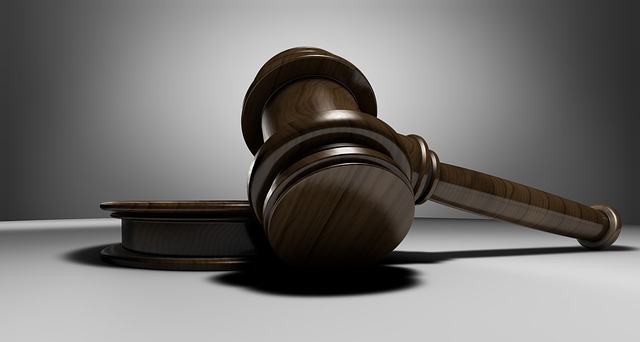Tech companies in healthcare must master Antitrust Litigation Strategies to thrive in a competitive yet regulated market. By understanding and adhering to antitrust laws, they can avoid legal repercussions, maintain their edge, and contribute to a robust digital health landscape. Success involves demonstrating fair practices, fostering competition through innovation, engaging with communities, implementing strong internal compliance programs, and participating in industry forums. A proactive approach, including ethical business conduct and regular policy updates, is crucial for defending against antitrust charges and securing long-term sustainability.
In the dynamic landscape of healthcare technology, navigating legal complexities is paramount for tech companies aiming to thrive. This article delves into critical healthcare legal issues, particularly focusing on antitrust litigation strategies for tech firms. We explore how antitrust laws impact healthcare innovation, common legal pitfalls, and successful defense cases. Additionally, we provide preventative measures and best practices to future-proof your company in a competitive market, ensuring compliance and sustained growth through effective antitrust litigation strategies for tech companies.
- Understanding Antitrust Laws and Their Impact on Healthcare Tech
- Common Legal Issues Faced by Tech Companies in Healthcare
- Strategies for Navigating Antitrust Litigation in a Competitive Market
- Case Studies: Successful Defense Against Antitrust Charges in Healthcare
- Future-Proofing Your Tech Company: Preventative Measures and Best Practices
Understanding Antitrust Laws and Their Impact on Healthcare Tech

In the ever-evolving landscape of healthcare technology, understanding antitrust laws is paramount for tech companies seeking to navigate this complex regulatory environment. Antitrust litigation strategies have become increasingly crucial as the digital health sector expands, fostering competition and innovation but also raising concerns about market dominance and unfair practices. Tech giants, in particular, must be adept at navigating these legal intricacies to avoid indictment and maintain a competitive edge.
Antitrust laws, such as those prohibiting monopolistic behavior and anti-competitive agreements, significantly impact healthcare tech through data sharing, collaborations, and mergers. An unprecedented track record of antitrust litigation across the country underscores the importance of compliance for tech companies. By implementing robust legal strategies that prioritize transparency, fair competition, and consumer welfare, these businesses can ensure their sustainability and contribute to a vibrant digital health ecosystem without running afoul of regulatory authorities.
Common Legal Issues Faced by Tech Companies in Healthcare

Tech companies playing a significant role in healthcare face unique legal challenges due to the intricate balance between innovation and patient privacy, data security, and ethical practices. One prominent issue is antitrust litigation, where strategies for tech giants often involve navigating complex regulatory environments and ensuring their operations do not stifle competition or harm consumers. These companies must be adept at defending against allegations of anti-competitive behavior, especially during all stages of the investigative and enforcement process.
Antitrust cases can be particularly challenging for healthcare tech firms as they strive to balance their entrepreneurial goals with the needs of patients and the broader community. Effective litigation strategies include demonstrating fair market practices, fostering competition through innovative solutions, and engaging with philanthropic and political communities to shape policy in a way that supports both technological advancements and patient welfare. Moreover, winning challenging defense verdicts can solidify these companies’ positions in the industry, setting precedents for future legal battles and ensuring their sustainability in a highly regulated sector.
Strategies for Navigating Antitrust Litigation in a Competitive Market

In the competitive tech market, navigating antitrust litigation presents unique challenges for companies seeking to maintain their edge while adhering to legal constraints. Tech giants often find themselves under scrutiny from regulatory bodies due to their dominance and potential anti-competitive practices. To counter this, a strategic approach is essential. First, establishing robust internal compliance programs that outline clear guidelines for competitive behavior can help tech companies demonstrate their commitment to fair play. This involves regular training sessions for employees on antitrust laws and regulations, ensuring every decision is made with legal considerations in mind.
Additionally, proactive engagement with both the philanthropic and political communities can foster a positive image and potentially mitigate risks. By participating in industry forums and discussions, companies can showcase their awareness of antitrust concerns, highlighting any efforts to promote fair competition. An unprecedented track record of ethical business practices and transparency throughout all stages of the investigative and enforcement process will further strengthen their position, demonstrating good faith and cooperation with regulators, thereby enhancing their ability to navigate and resolve potential antitrust issues effectively.
Case Studies: Successful Defense Against Antitrust Charges in Healthcare

In the complex landscape of healthcare, where technology plays an increasingly pivotal role, antitrust litigation strategies have become a hotly debated topic. Tech companies, often at the forefront of innovation, must navigate intricate legal waters to ensure their growth and survival. A compelling example is seen in successful defenses against antitrust charges, demonstrating the importance of robust legal strategies. For instance, leading tech giants have employed multifaceted approaches to avoid indictment and counter allegations of anti-competitive practices.
These companies leverage their unprecedented track record of fostering competition and innovation through partnerships and collaborations. By presenting themselves as champions of a free market, they challenge the very essence of antitrust accusations. This strategy not only protects corporate interests but also safeguards the individual clients who benefit from advanced healthcare solutions. Through meticulous planning and a deep understanding of regulatory frameworks, these tech titans have established a strong defense mechanism against potential legal pitfalls, solidifying their position in the industry.
Future-Proofing Your Tech Company: Preventative Measures and Best Practices

As a tech company, staying ahead of legal challenges is crucial to ensure long-term success. One significant area of focus should be on future-proofing your business against potential antitrust litigation strategies. This proactive approach involves implementing robust internal practices and adopting best technologies to safeguard against legal pitfalls.
Regularly reviewing and updating your data management policies can help maintain transparency, a key factor in preventing allegations of anti-competitive behavior. Additionally, fostering ethical business conduct through comprehensive employee training on compliance matters, especially regarding white-collar and economic crimes, is essential. By promoting a culture of integrity, you can mitigate risks associated with jury trials and protect both your corporate and individual clients.
In navigating the complex landscape of healthcare technology, understanding antitrust laws is paramount. As these regulations shape market competition, tech companies must employ strategic litigation defenses and preventative measures to thrive. By adopting best practices highlighted in this article—from recognizing common legal issues to implementing robust compliance strategies—tech entities can successfully navigate antitrust challenges, ensuring their long-term viability and competitiveness within the healthcare sector. Equipping themselves with these insights equips tech companies with the tools necessary to mitigate risks and foster innovation.






